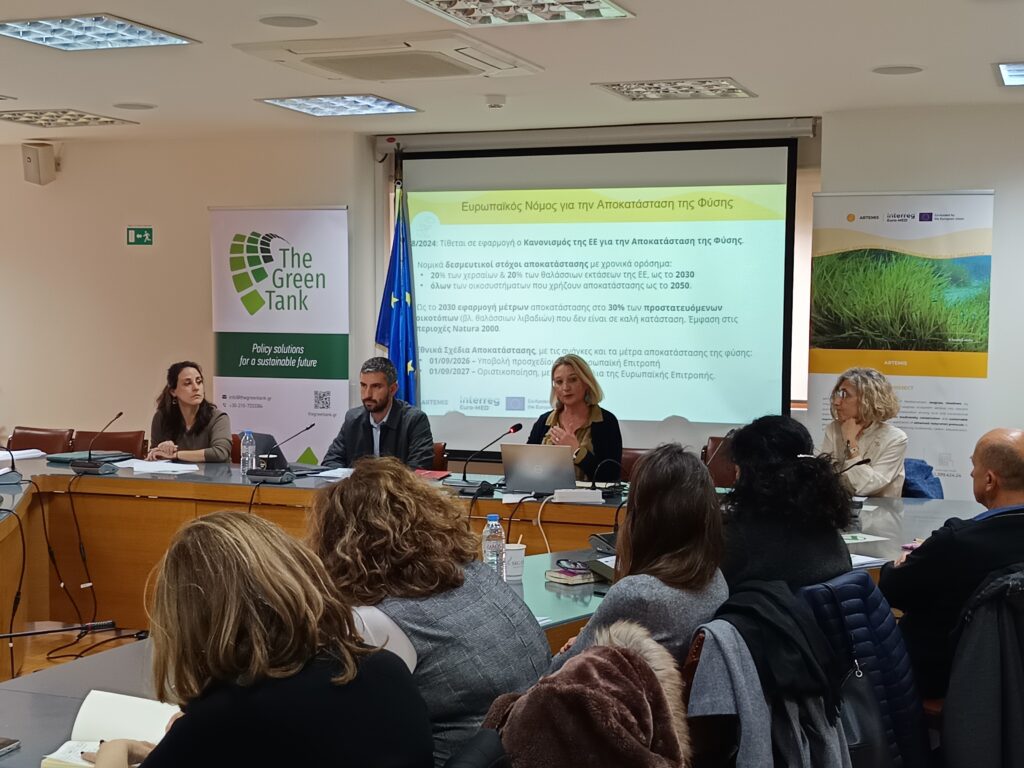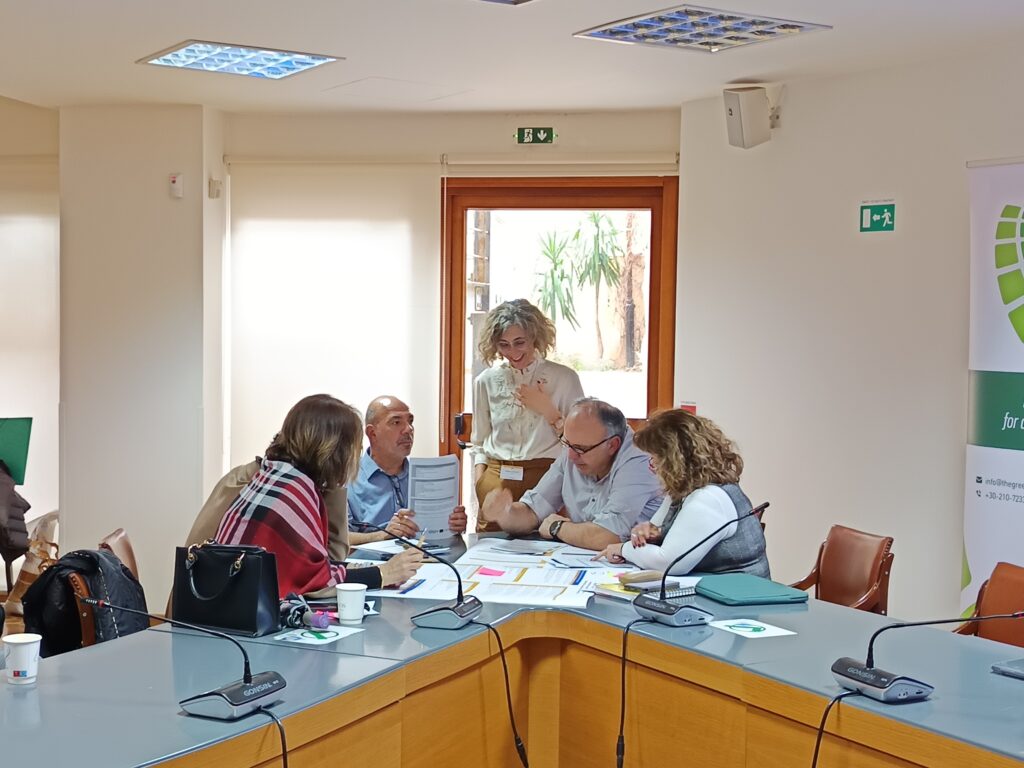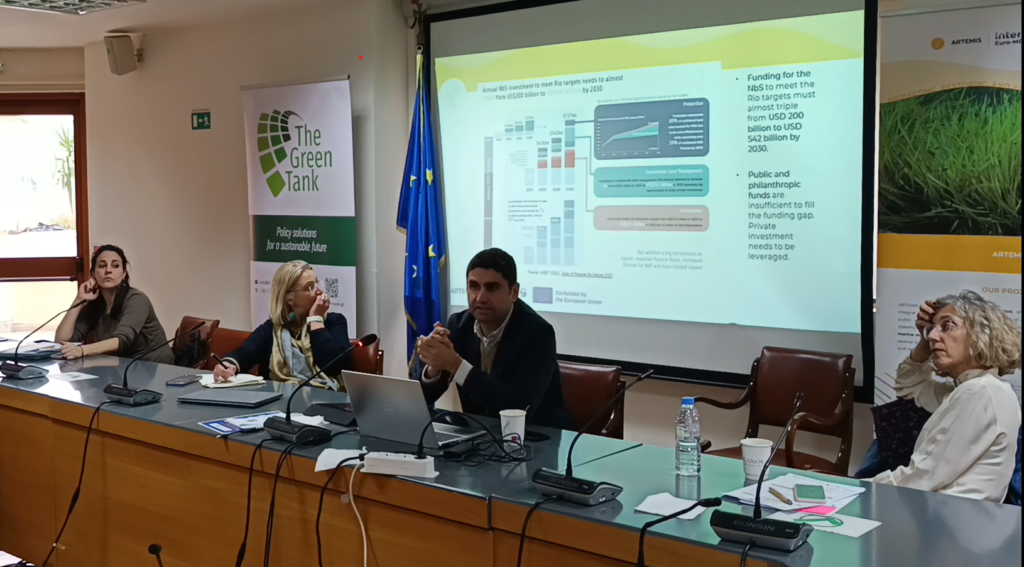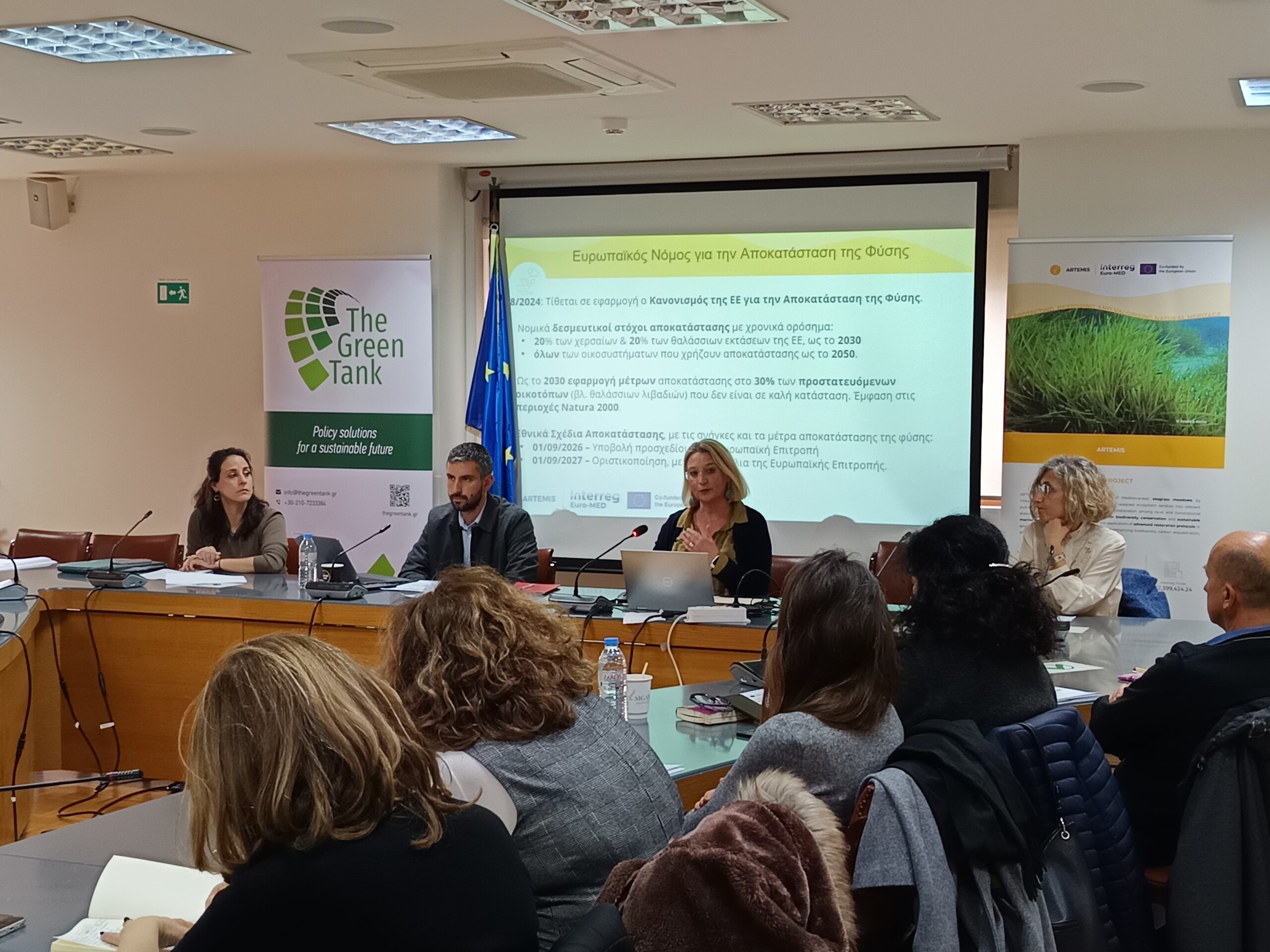As Greece prepares to implement the European Regulation for the Restoration of Nature, partners of the ARTEMIS project and local stakeholders in Crete have begun discussions to jointly shape a proposed institutional framework and explore alternative funding mechanisms for the restoration of Posidonia.
The Green Tank, in collaboration with the Hellenic Centre for Marine Research (HCMR), invited local stakeholders from Crete to a workshop titled “Restoration of Posidonia Meadows: Institutional Framework, Challenges, and Prospects”.

The workshop “Restoration of Posidonia Meadows: Institutional Framework, Challenges, and Prospects,” organized on March 4, 2025, by The Green Tank and the Hellenic Centre for Marine Research (HCMR) at the Heraklion Chamber of Commerce in Crete – ARTEMIS Interreg Euro-MED
The meeting, held on Tuesday, March 4, 2025, at the Heraklion Chamber of Commerce, was attended by representatives from the Region of Crete, the Organization for the Natural Environment and Climate Change (NECCA), the Decentralized Administration, the University of Crete, and other stakeholders, as well as representatives of the ARTEMIS project partners. The area of Atzikiari Bay in the Municipality of Sitia, Crete is one of the pilot sites of the project, among the 4 European pilot sites, where restoration actions are being carried out by the scientific team of HCMR.
The goal of the workshop was to understand the existing institutional framework, identify challenges, and map the prospects created following the adoption of the Nature Restoration Law, so that, starting from Crete, the foundations can be laid for the effective restoration of Posidonia meadows across the country.

A moment from the “Restoration of Posidonia Meadows: Institutional Framework, Challenges, and Prospects” workshop, held on March 4 in Crete
Greeting the initiative on behalf of the Region of Crete, which is an associate partner of the ARTEMIS project, the Deputy Regional Governor for the Environment, Nikos Xylouris stated: “As the great environmental value of the Posidonia meadows has finally become very well known in recent years, the Interreg Euro-MED ARTEMIS project is of significant importance and interest. The Region of Crete, understanding the great environmental importance of the Posidonia meadows, has supported this project from the very first moment. We expect that this project will provide clear guidelines for restoration, so we can have a tool for the protection and promotion of these areas in our hands”.
Through participatory exercises, stakeholders started to identify the necessary steps that should make up the new institutional framework.
“Restoring nature is a new field of action, and this alone is a challenge. By leveraging the experience and positive response from the involved stakeholders, we have recorded the potential competent authorities/bodies, and the stages of implementing and monitoring restoration actions. Thus, we are one step closer to formulating proposals for a realistic and feasible institutional framework for Posidonia restoration”, said Dimitra Syrou, Nature Policy Associate at the Green Tank, a project partner.
“Today we have sufficient knowledge to carry out pilot projects to protect and restore nature and we are constantly enriching it. With projects such as ARTEMIS we are working in this direction. What is needed now is to implement policies to enhance protection and remove pressures and to create the institutional framework for active restoration”, said Eugenia Apostolaki, Senior Researcher at the HCMR Oceanography Institute, project partner.
Special emphasis was placed on alternative funding schemes to promote such actions, such as Payments for Ecosystem Services (PES) for Posidonia, which include, among other things, carbon sequestration and storage, biodiversity conservation, and the development of recreational and tourism activities.

David Alvarez, ECOACSA, during the “Restoration of Posidonia Meadows: Institutional Framework, Challenges, and Prospects” workshop – ARTEMIS Interreg Euro-MED
“Through interaction with local stakeholders, we can adapt the funding schemes proposed by the ARTEMIS project for Posidonia restoration actions to the conditions of each area, an element that will increase their acceptance and effectiveness,” said David Álvarez García, CEO and Founder of ECOACSA, project partner.


